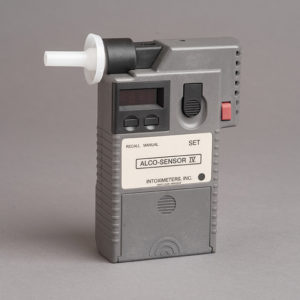
HHS Expanded Opioid Testing and Allowance of Oral Fluid Testing.
On Monday, January 23, 2017 the Department of Health and Human Services (HHS) and the Substance Abuse and Mental Health Services Administration (SAMHSA) agencies issued a notice for revisions to the the mandatory guidelines for federal workplace drug trusting programs using urine as a testing method.
The Secretary of Health and Human Services with SAMSHA, allow federal executive branch agencies to test for additional Schedule II drugs of the Controlled Substances Act which includes oxycodone, oxymorphone, hydrocodone and hydromorphone in federal drug-free workplace programs. Additionally, the notice calls for the removal of methylenedioxyethylamphetamine (MDEA) from the authorized drugs in Section 3.4, but adds methylenedioxyamphetamine (MDA) as an initial test analyte. The notice raises the lower pH cutoff from 3 to 4 for identifying specimens as adulterated, and requires MRO requalification training and re-examination at least every five years after the initial MRO certification. The revisions, which will take effect on October 1, 2017, will allow federal agencies to authorize collection of an alternate specimen (e.g., oral fluid) when a donor is unable to provide a sufficient amount of urine specimen at the collection site. Many of the wording changes and reorganization of the UrMG were made for clarity, to use current scientific terminology or preferred grammar, and for consistency with the OFMG.
DOT Proposed Regulation Changes to Allow Expanded Opioid Panel, Remove Blind Specimen Requirement for C/TPAs.
Also, on Monday, January 23, 2017, the Department of Transportation issued a proposed amendment to its drug-testing program regulation to allow for the addition of four opioids to its drug-testing panel. These additions include hydrocodone, hydromorphone, oxymorphone, and oxycodone. The proposal includes adding methylenedioxyamphetamine (MDA) as an initial test analyte and removes methylenedioxyethylamphetamine,(MDEA) as a confirmatory test analyte. The proposed revision of the drug-testing panel is intended to harmonize with the revised Mandatory Guidelines established by the U.S. Department of Health and Human Services for Federal drug-testing programs for urine testing. This proposal also adds clarification to certain drug-testing program provisions where necessary, removes outdated information in the regulations that is no longer needed, and proposes to remove the requirement for employers and Consortium/Third Party Administrators to submit blind specimens. The DOT asks for comments to the notice of proposed rule-making by March 24, 2017.
DATIA will be analyzing both notices, providing comments on the DOT proposed regulations, and providing members with clear and concise guidance on how these new regulations will impact their operations. Representatives from both DOT and HHS will be at the DATIA Annual Conference to discuss these new changes.
